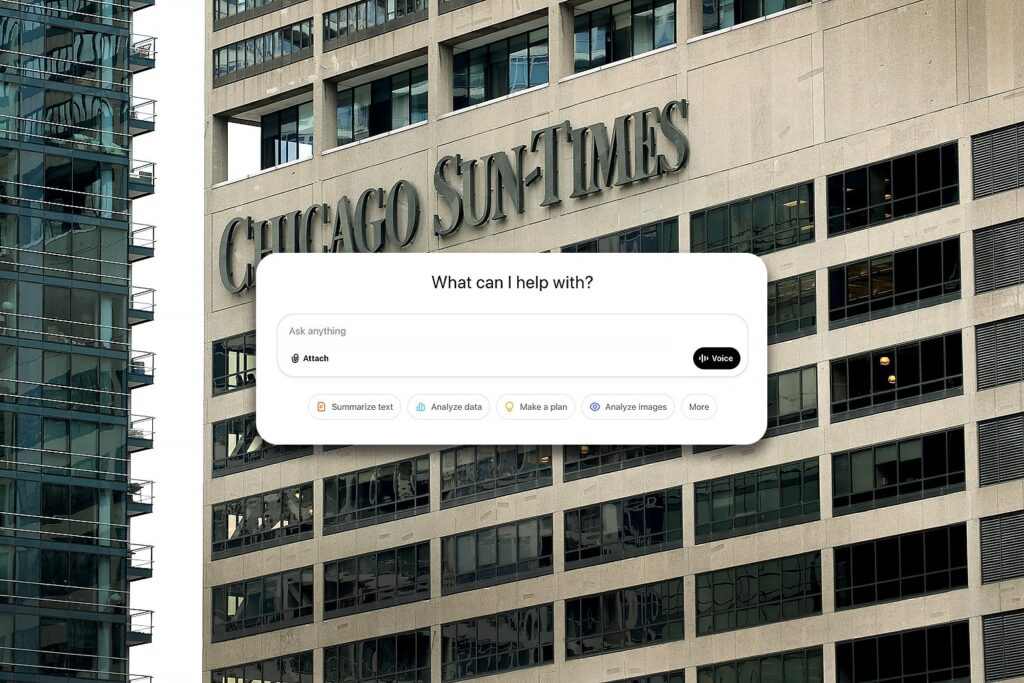
CHICAGO – In a startling revelation, the Chicago Sun-Times and the Philadelphia Inquirer have been found publishing content largely produced by artificial intelligence, including a summer reading list featuring imaginary books.
Immediate Impact
The discovery has sparked widespread scrutiny and concern over the integrity of content in these respected publications. The now-infamous “summer reading list” included recommendations for 15 books, of which only five were real. The list featured fabricated titles such as Isabel Allende’s Tidewater Dreams and Min Jin Lee’s Nightshade Market.
Key Details Emerge
Further investigation revealed that the content was part of a 56-page insert produced by A.I., which also included generic listicles on summer activities. Dr. Jennifer Campos, a supposed expert on “hammock culture,” was among several fictitious experts cited in the section.
Dr. Jennifer Campos, a purported professor of leisure studies, did not exist.
Industry Response
This incident is not isolated, as it highlights a growing trend of legacy publications utilizing A.I. to generate content. The insert was provided by King Features, a division of Hearst, which syndicates various media content. A spokesperson from Chicago Public Media admitted to assuming there would be an editorial process in place.
By the Numbers
80% of newspaper revenue at its peak in 2005 came from advertising.
What Comes Next
The fallout from this incident raises questions about the future of journalism and the role of A.I. in content creation. Marco Buscaglia, the sole byline on the articles, expressed regret over the errors but defended his use of A.I. as a necessary compromise to meet high-volume demands.
Expert Analysis
According to industry experts, the reliance on A.I. for content production is a symptom of declining standards in print journalism. The use of A.I. could lead to a feedback loop where human oversight diminishes, further eroding the quality and trustworthiness of published content.
Background Context
Syndication has long been a staple in the newspaper industry, allowing publications to share popular content like comic strips and special sections. However, the integration of A.I. into this model has introduced new challenges, as seen with the Heat Index insert.
Regional Implications
The incident has implications for local journalism, where the authenticity of content is paramount. As newspapers continue to adapt to digital landscapes, the balance between human and A.I.-generated content remains a critical issue.
Timeline of Events
- May 15: Inquirer publishes the A.I.-generated section.
- Recent Week: Discovery of fake books and experts.
- Tuesday: Marco Buscaglia acknowledges errors.
The announcement comes as the media industry grapples with the integration of A.I. technologies. Future developments will likely focus on establishing ethical guidelines and ensuring transparency in content creation.
Meanwhile, industry experts warn of the potential decline in human readership as digital interactions increasingly occur between automated systems. This shift could further impact the economics of ad-supported content sites.
The timing is particularly significant because it highlights the urgent need for a reevaluation of content creation processes in journalism as the digital age evolves.







